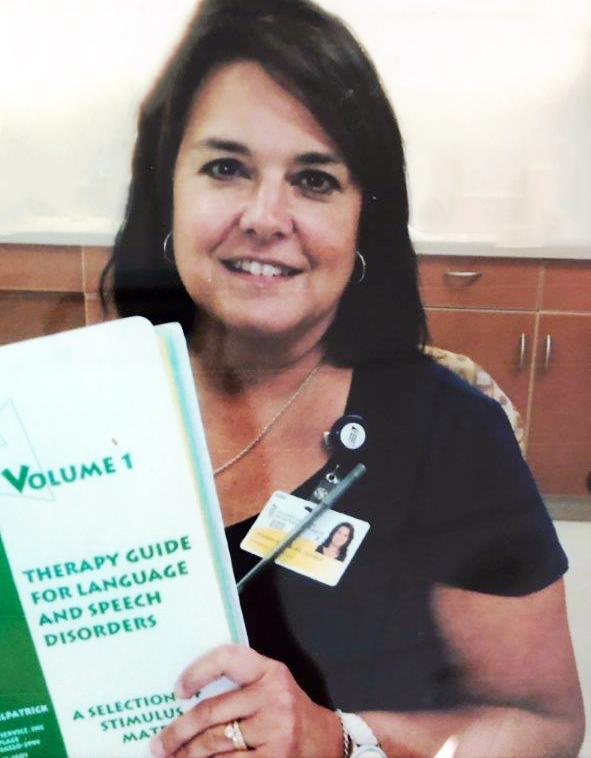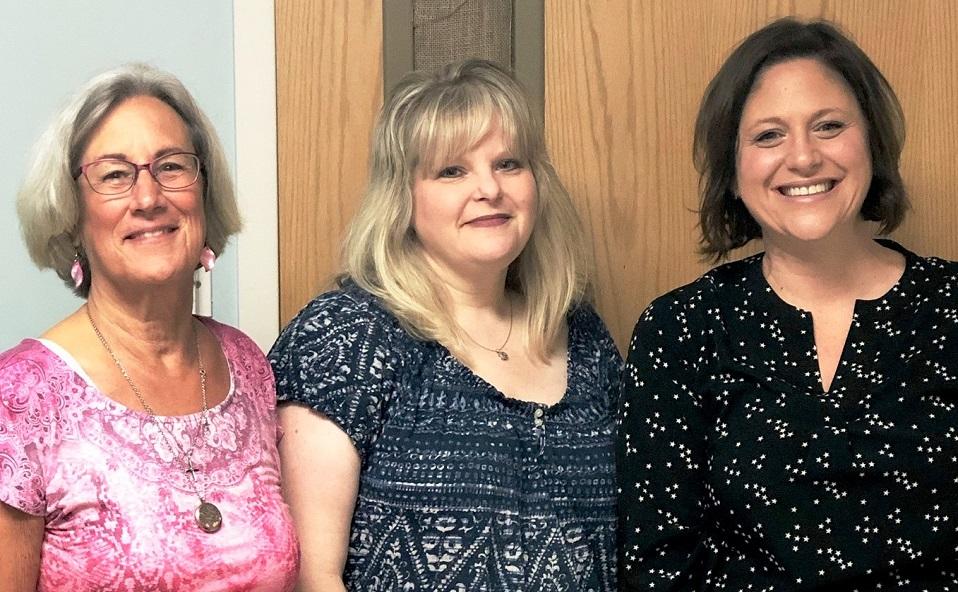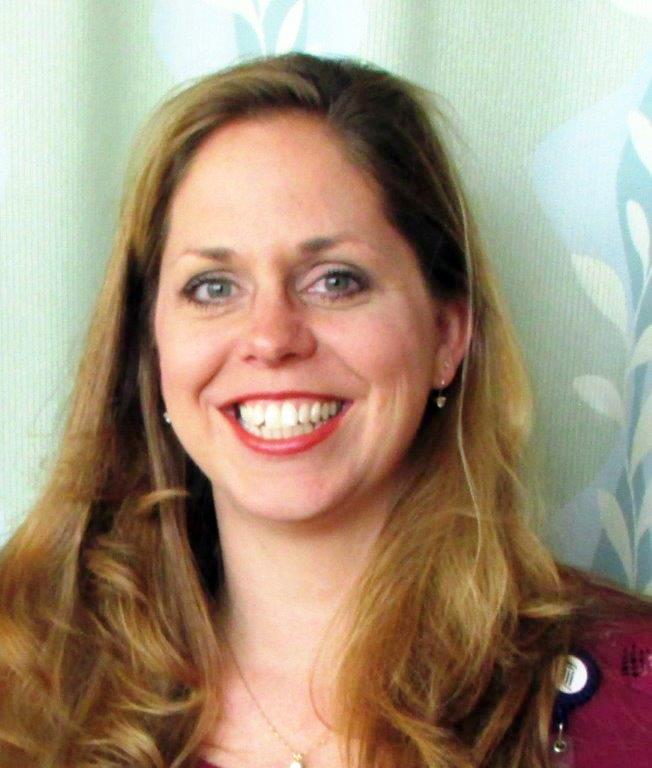May is Better Speech and Hearing Month – a good time to learn about speech and language problems for adults and children, according to speech and language pathologist Amy Beth Hellman, UM SRH Comprehensive Rehabilitation Services.

Amy Beth Hellman provides speech-language therapy at Shore Rehab at Easton.
In adults, speech and language problem scan result from various causes, including brain injury, stroke, and brain diseases such as Alzheimer’s, multiple sclerosis and Parkinson’s. They can also stem from breathing problems, cancers in the head and/or neck region, and voice damage. Speech and language disorders that may be acquired in adulthood include the following:
Aphasia – problems speaking, understanding, reading, writing, telling time, and/or using numbers, often caused by stroke.
Cognitive-communication disorders – difficulty paying attention, remembering, organizing thoughts, and solving problems.
Apraxia of speech -caused by damage to the parts of the brain involved in speaking.
Dysarthria – speech difficulties due to weakness of muscles involved in breathing and/or speaking.
Voice disorders – Changes in pitch, loudness and vocal quality due to diseases such as Parkinson’s or multiple sclerosis, and others.
According to Hellman, who works with patients at Shore Rehab Center at Easton and on occasion at Shore Medical Center at Easton, speech-language pathologists can help adults with these and other communication problems. “Swallowing disorders, called dysphagia, are also treated by speech-language pathologists,” Hellman says. “Dysphagia is a common side effect of numerous diseases in adults. Treatment for swallowing disorders can transform a person’s quality of life and overall health.”
With speech and language disorders ranking among the most common disabilities in children, parents and caregivers are encouraged to learn the signs and seek an evaluation if they have concerns about their child’s ability to communicate.

Speech-language pathologists serving patients at Shore Medical Centers at Dorchester and Easton, Shore Rehab Centers at Cambridge and Easton, and The Requard Center for Acute Rehabilitation are (l. to r.) Anne Usiondek-Benjamin, Malinda Larrimore and Erin Scheele.
For young children, warning signs are: Does not babble (4–7 months); makes only a few sounds or gestures, like pointing (7–12 months); does not understand what others say (7-24 months); says only a few words (12–18 months); says p, b, m, h, and w incorrectly in words (1–2 years); words are not easily understood (18–24 months); does not put words together to make sentences (1.5–3 years); says k, g, f, t,
d, and n incorrectly in words and/or produces speech that is unclear even to familiar people (2–3 years); and repeats the first sounds of words, like “b-b-b-ball” for “ball” and/or stretches sounds out, like “fffffarm” for “farm” (any age).
For school-age children, warning signs are: trouble following directions; problems reading and writing; difficulty understanding what others say or being understood by others; and/or trouble talking about thoughts or feelings.
“Development of strong communication skills during childhood is extremely important,” says Hellman. “The common misconception that children ‘grow out’ of speech or language difficulties often delays treatment. Good communication skills are help with a child's behavior, learning, reading, social skills and friendships. The large majority of parents report significant improvement after treatment.”

Diane Lorsong provides speech-language therapy at Shore Rehab at Queenstown.
Speech-language therapy for children and adults is provided by UM Shore Regional Health’s Comprehensive Rehabilitation Services at Shore Medical Centers at Dorchester and Easton, Shore Rehab Centers at Cambridge, Easton and Queenstown, and The Requard Center for Acute Rehabilitation. To inquire about speech-language therapy for children or adults, contact Frank Rath, manager, Outpatient Services, 410-822-1000, ext. 7641.



Write a Letter to the Editor on this Article
We encourage readers to offer their point of view on this article by submitting the following form. Editing is sometimes necessary and is done at the discretion of the editorial staff.